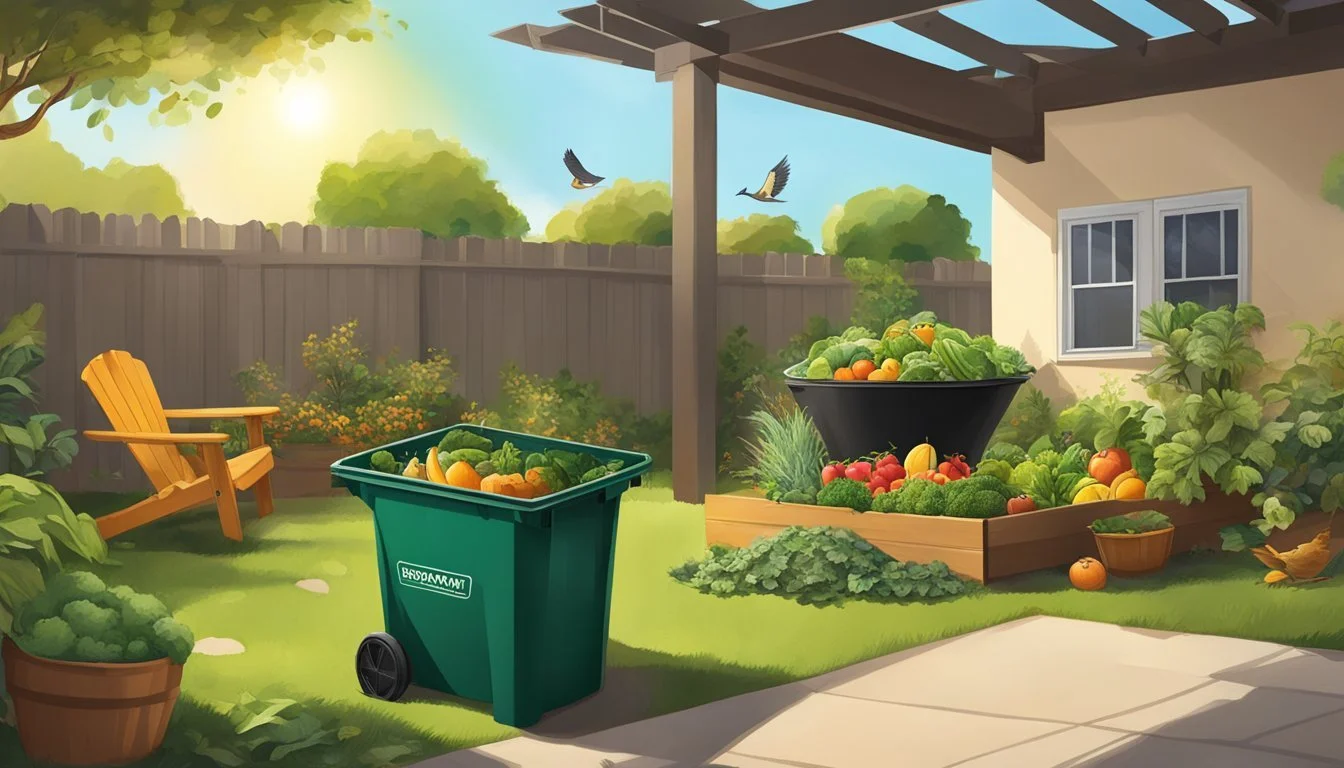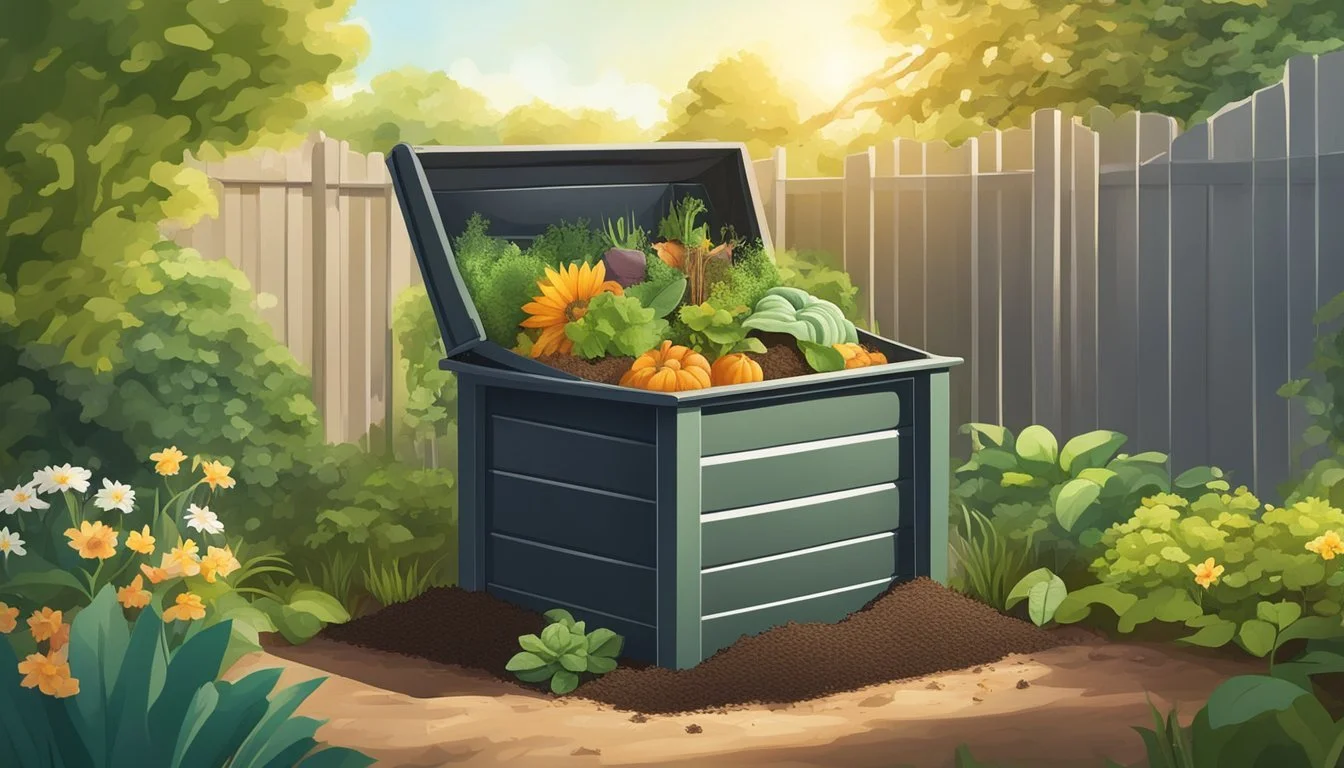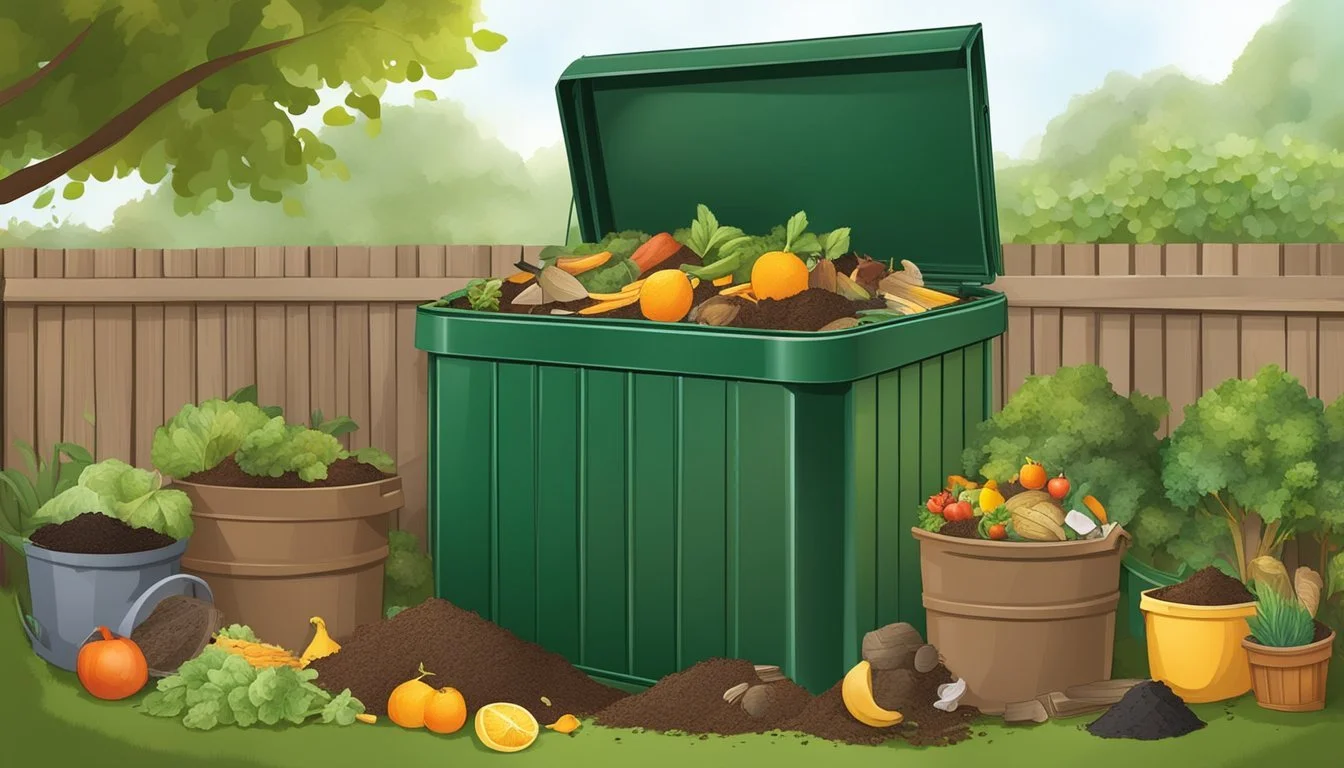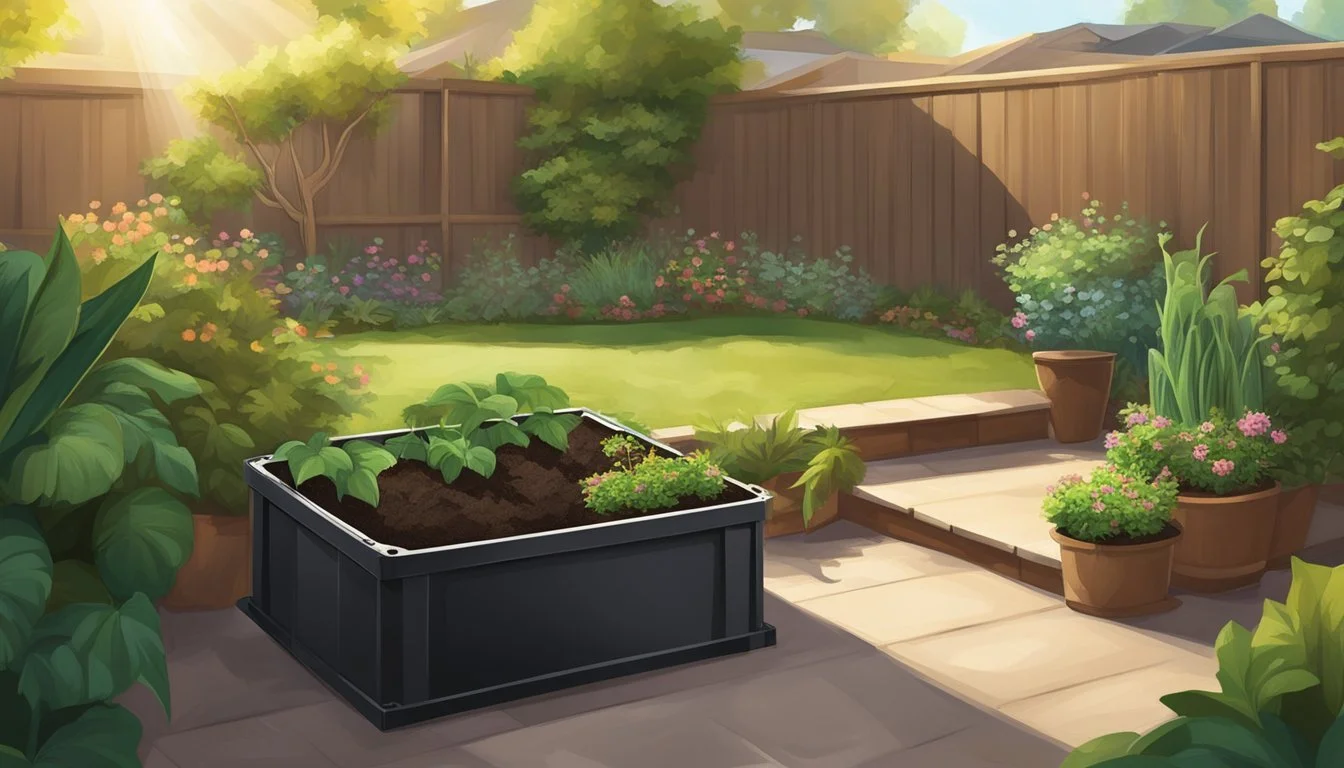Guide to Composting in West Covina, CA
Essential Tips for Sustainable Waste Management
Composting in West Covina is a straightforward and impactful way for residents to contribute to environmental sustainability. By converting kitchen scraps and yard trimmings into nutrient-rich soil, individuals not only reduce the amount of waste sent to landfills but also provide their gardens with organic material to help plants thrive. The City of West Covina supports these efforts through programs aimed at educating citizens on the benefits and methods of home composting.
Several recycling and waste reducing collection programs are provided by the local Environmental Services, which facilitate the initiation of home composting practices. The city encourages using compost bins and offers discounted rates for these after residents attend a smart gardening webinar, empowering them with the knowledge to start their own composting setup at home.
In partnership with organizations such as Athens Services, West Covina periodically provides free compost to residents, promoting the use of organic material in gardening. This initiative underscores the community's dedication to environmental stewardship and provides an excellent resource for those looking to enrich their residential landscapes naturally. Through these efforts, the city maintains a commitment to reducing environmental impact while enhancing the quality of its soil and greenery.
Basics of Composting
In West Covina, CA, mastering the basics of composting can transform organic household waste into a valuable garden resource. This section provides a guide through the foundational aspects and benefits of composting.
What Is Composting?
Composting is a natural process that turns organic material, such as leaves, kitchen scraps, and yard waste, into nutrient-rich soil amendment known as compost. The key components needed for composting include Carbon (browns like dried leaves), Nitrogen (greens like food scraps), Water, and Air. Managing these elements correctly speeds up the decomposition process performed by microorganisms, turning waste into useful compost over Time.
Benefits of Composting
Composting offers multiple advantages for both the garden and the environment. Not only does it improve soil structure, which increases Water retention and Energy Efficiency in plants, but it also reduces the need for chemical fertilizers. Using compost as Mulch can suppress weeds and conserve soil moisture. Environmentally, it reduces landfill waste and contributes to Renewable Energy initiatives by minimizing methane emissions from decomposing organic matter.
Composting Methods
In West Covina, residents have several effective methods at their disposal for converting organic waste into valuable compost. Each technique varies in size, moisture needs, aeration, and temperature regulation, catering to different preferences and available resources.
Traditional Composting
Traditional composting involves creating a compost bin or pile where organic waste is layered and left to decompose. The essential elements for this process include a balance of green and brown materials, which provide nitrogen and carbon, respectively. Regularly turning the compost pile ensures adequate aeration and speeds up decomposition. For optimal results, the pile should maintain moisture like a wrung-out sponge and be situated in a location where it can benefit from natural temperature changes, which facilitate the breakdown of materials.
Vermicomposting
Vermicomposting is the process of using worms to break down organic waste. Suitable for smaller-scale operations like indoor bins, this method relies on red wrigglers, which are efficient decomposers. These creatures transform scraps into a nutrient-rich byproduct known as worm castings, an excellent addition to soil. Factors such as bin size and moisture levels are essential for a successful vermicomposting setup, as they directly affect the worms' ability to thrive and process waste.
Green Waste Processing
Green waste processing encompasses the collection and transformation of yard debris and other plant-based materials into compost at a community level. In West Covina, the local government has programs in place to facilitate green waste pickup. These large-scale composting systems manage waste from many households simultaneously, significantly reducing landfill contributions. The finished compost is often available for community use, enriching public and private gardens alike.
Materials for Composting
When creating compost in West Covina, it is essential to balance carbon-rich "browns" and nitrogen-rich "greens" to achieve the optimal decomposition of organic matter. This balance helps to maintain the right level of moisture and air circulation for microorganisms to break down the material efficiently.
Carbon-Rich Materials
Carbonaceous materials, often referred to as "browns," provide the compost with energy and structure. These items are typically dry and may include:
Leaves: Dry leaves add bulk and capture air pockets for microorganisms to thrive.
Shredded Paper: Non-glossy, shredded paper is an excellent source of carbon and helps to create air gaps within the compost pile.
Sawdust: A small amount of sawdust can be used, but it should be from untreated wood and sparingly added to avoid clumping.
It is recommended to maintain a larger proportion of browns to greens to prevent the compost from becoming too wet and compacted.
Nitrogen-Rich Materials
Nitrogenous materials, known as "greens," are crucial for the growth of the microbes that drive the composting process. They add essential proteins and moisture. Some of the most common greens include:
Food Scraps: Vegetable peels and fruit scraps contribute necessary moisture and nitrogen. However, it is important to avoid dairy scraps, as they can create odor problems and attract pests.
Coffee Grounds: Coffee grounds are a nitrogen-rich addition that can be sprinkled into the compost pile.
Grass Clippings: Fresh grass clippings are high in nitrogen and decompose quickly. They should be mixed well to prevent matting.
Tea Bags: Used tea bags can be added, but ensure any staples are removed first.
These greens should be interspersed with browns to maintain an airy and damp environment, similar in consistency to a wrung-out sponge. Avoid adding overly wet materials in large quantities and turn the pile regularly to evenly distribute materials and aerate the compost.
West Covina Composting Resources
West Covina, California offers a structured approach to composting, aiming to reduce waste and enhance sustainability. The city's resources, ranging from the Municipal Code to community-driven programs, make composting accessible and well-regulated for residents.
Municipal Code and Guidelines
West Covina's Municipal Code contains specific guidelines on composting that ensure residents are compliant with local regulations. The Public Services Department oversees waste management and strives to educate the public on proper composting techniques, helping to maintain the city’s environmental goals in line with state mandates. Residents can review the city's composting policies for clear instructions on what materials can be composted and how to manage composting bins, to prevent nuisance or health hazards.
Community Services and Programs
Athens Services provides essential waste management services in West Covina. They facilitate a free compost giveaway event, offering residents high-quality compost for their gardens. Meanwhile, the city promotes Smart Gardening practices, a program that includes workshops on composting, water-wise gardening, and worm composting. For hands-on learning experiences, residents are encouraged to participate in community workshops, which are often held at local venues such as the West Covina Senior Center. Additionally, Community Gardens in West Covina serve as a practical place for residents to apply their composting knowledge and contribute to a shared green space.
Sustainable Practices in West Covina
West Covina has implemented eco-conscious strategies focused on reducing landfill waste and promoting recycling. These practices are in line with California's statewide waste reduction policies and local environmental initiatives.
Local Recycling Programs
Residential recycling services in West Covina empower community members to contribute to waste reduction. The city has incorporated the Blue Star Program, which encourages proper disposal of household waste and recycling. This initiative is complemented by CalRecycle guidelines that set the standard for recycling practices across the state. Moreover, the city has designated recycling and waste reducing collection programs that handle everything from green waste to food-soiled paper, supporting the diversion of organic material from landfills.
Residents can drop off their green waste—garden trimmings and similar organic materials—to local facilities where it can be processed and repurposed. The embracing of green waste programs has proven instrumental in significantly decreasing the total waste sent to landfills, turning potential methane-generating materials into beneficial compost.
Public Service Initiatives
West Covina runs several initiatives aimed at the betterment of both the environment and the community. The Adopt a Senior Donation Program exemplifies the city's commitment to sustainable community support, providing essential items to senior residents while promoting the donation of gently-used goods, reducing unnecessary waste.
Furthermore, partnerships with utility companies, such as the Southern California Gas Company, lead to various programs that assist residents in adopting more energy-efficient habits. These collaborations enhance the city's environmental profile, and offer resources and incentives to homeowners aiming to reduce their carbon footprint.
The city’s efforts to maintain a sustainable environment showcase a dedication to both current ecological standards and the welfare of its residents. Through these combined recycling programs and public service initiatives, West Covina stands as a model for promoting environmental responsibility and resource conservation.
Advancing Environmental Goals
West Covina is dedicated to fostering sustainable practices that align with California's rigorous environmental regulations. Crucial strategies involve adhering to legislative mandates and bolstering public awareness and participation in waste management programs.
Legal Framework and Compliance
West Covina ensures strict adherence to California's legislative benchmarks for sustainability, prominently including SB 1383 and AB 341. SB 1383 targets a significant reduction in organic waste by 2025, while AB 341 mandates recycling services for businesses and multifamily dwellings to achieve statewide recycling goals. Municipal provisions translate these directives into local ordinances, obliging residents and businesses to partake in recycling and composting activities, thereby institutionalizing eco-friendly waste disposal.
SB 1383 Compliance Efforts:
Enhanced organic waste collection services
Development of local composting facilities
AB 341 Implementation:
Mandatory commercial and residential recycling
Reporting and monitoring frameworks
Community Engagement and Education
Efficiently executed community engagement strategies aid West Covina in educating its citizens about the importance of directly participating in environmental schemes. The city leverages social media platforms to disseminate information, fostering interaction and ensuring wider coverage of its initiatives. Residents are encouraged through various programs to practice composting, consequently reducing landfill-bound waste. Moreover, online convenience methods have been introduced, including informative websites and digital service request platforms, simplifying the process of recycling and waste reduction.
Educational Campaigns:
Workshops on composting techniques
Social media campaigns spotlighting waste segregation benefits
Online Tools:
User-friendly recycling program webpages
Digital platforms for service inquiries and knowledge-sharing
Through these structured efforts, West Covina demonstrates its commitment to not only meeting state-mandated environmental objectives but also enhancing the quality of life for its community through methodical waste reduction and recycling education.
Composting at Home
Home composting transforms kitchen and yard waste into rich soil amendment through a natural decomposition process. It's an efficient way to reduce waste and enhance garden health.
Setting Up a Home Compost System
One can start by selecting a suitable size for their composting unit based on available space and the amount of organic material available. A balanced mix of "green" (nitrogen-rich) and "brown" (carbon-rich) materials is essential. The composting unit should be located in a dry, shaded area close to a water source. For West Covina residents, discounted compost bins are available through the city's programs.
Maintaining Your Compost
Maintaining a compost pile requires regular attention to moisture and temperature, which are critical factors for decomposition. The compost should remain as moist as a wrung-out sponge. Turning the pile regularly ensures aeration, supplying oxygen necessary for microbial activity. One must monitor the pile for temperature increases, which indicate that the composting process is active.
Environmental Conservation Efforts
West Covina, CA has initiated several programs aimed at environmental conservation, focusing on areas such as land restoration and promoting public engagement. These efforts are integral to the city's mission to foster a sustainable and eco-conscious community.
Land Conservation and Restoration
West Covina has dedicated resources to Land Restoration Projects with the goal of maintaining the natural beauty and ecological balance of the area. These projects often involve reclaiming areas that have been degraded by human activity and restoring them to their natural state. This not only benefits the Nature Lovers who revel in the city's green spaces but also contributes to West Covina's aim of being Carbon Neutral. The restoration of these habitats is essential to the survival of local wildlife and the health of the ecosystem.
Public Awareness and Involvement
The city understands that conservation cannot happen without the support of its residents. Therefore, engaging the public and raising awareness about environmental issues is key. Through various Environmental Services Programs, citizens are encouraged to participate in recycling efforts and proper waste reduction practices. By providing education on the importance of environmental stewardship, West Covina empowers its citizens to become active participants in the city's sustainability initiatives. Public involvement not only helps in meeting the conservation goals but also promotes a strong community spirit around the shared objective of protecting the environment.
Beyond Backyard Composting
As composting practices evolve, West Covina residents have options that go beyond traditional backyard methods. These advanced alternatives focus on sustainable disposal of a broader range of organic materials, including those not typically processed in a home composting system.
Human Composting Services
Human composting services, also known as natural organic reduction, offer an environmentally-friendly alternative to traditional burial and cremation. These services transform human remains into nutrient-rich soil, which can then contribute to the regeneration of the earth. In West Covina, residents interested in this option could seek providers that specialize in body composting, ensuring the process complies with state regulations surrounding hazardous material and waste.
Contribution to Circular Economy
The circular economy is a model that minimizes waste and makes the most of resources. In West Covina, community-scale composting efforts can play a significant role. By recycling organic waste—including hazardous material and electronics that require special handling—into nutrient-rich compost, the city can support soil transformation and enrich local landscapes. Local programs may collaborate with facilities that handle hazardous waste, ensuring materials like batteries or computers are processed safely and according to environmental guidelines.
In conclusion, these advanced composting methods not only aid in waste reduction but also support a holistic approach to resource management in West Covina, contributing to a healthier environment.
Community Involvement and Outreach
West Covina, CA, fosters a vibrant community spirit through various outreach programs that offer residents opportunities to engage in volunteer work, educational workshops, and recreational activities. Each program is designed to enhance community participation and provide enriching experiences for all ages.
Volunteering and Community Services
The city encourages residents to take an active role in maintaining and enhancing their community's quality of life. Volunteering opportunities are plentiful, whether it's contributing time at Shadow Oak Community Center or assisting with events at West Covina Ridge Riders Equestrian Center. The After School Program relies on volunteers for tutoring and youth mentorship, making it an invaluable resource for local schools.
Educational Opportunities and Workshops
West Covina takes pride in its educational programs, which aim to provide learning experiences for every age group. The Master Composter class, facilitated by the UC Master Gardener program, offers residents a chance to become certified in composting, a skill contributing to the city's sustainability efforts. Additionally, Recreation Classes and Fine Arts Performances at the Parks and Community Center Facilities offer further avenues for personal growth and cultural enrichment.
Community Recreation and Activities
Recreation and leisure play a vital role in West Covina's community outreach, with an extensive Community Recreation Guide outlining activities suitable for all ages. Residents can enjoy various programs, including renting Picnic Pavilions for gatherings or joining special events designed to bring the community together. The Special Events section of the guide provides a calendar of upcoming city-sponsored happenings that promote a strong sense of togetherness.












